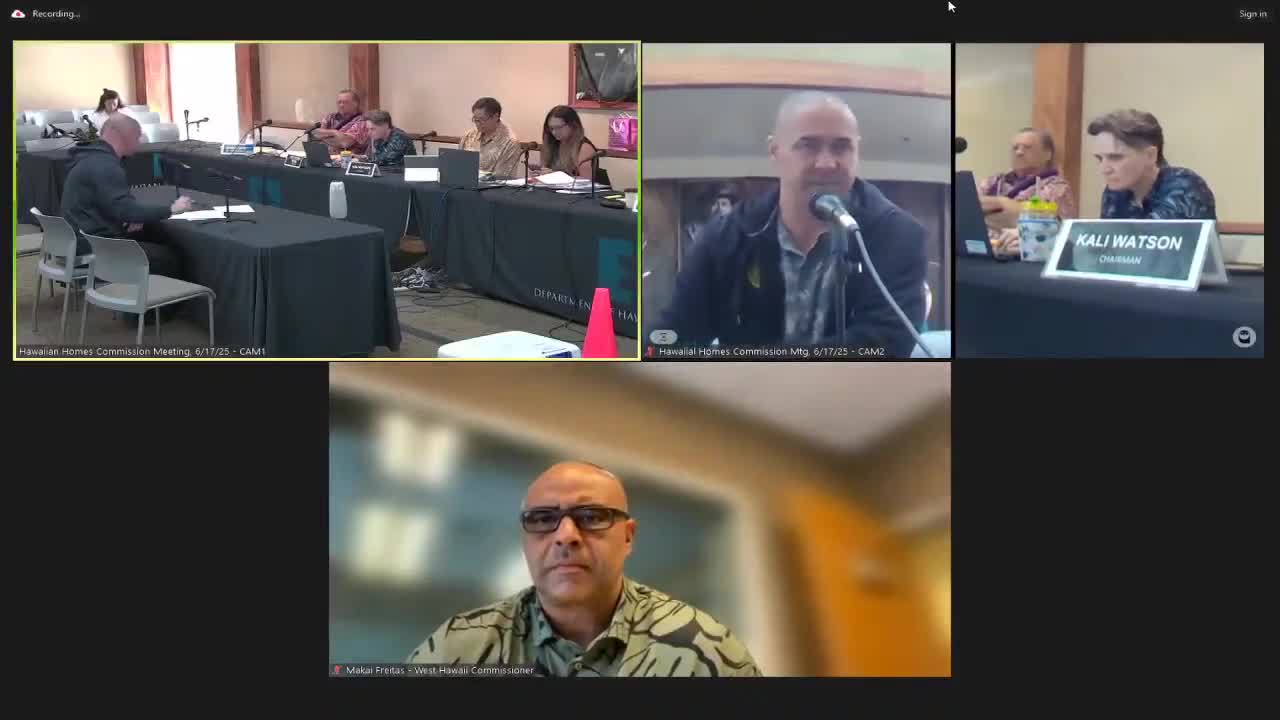Article not found
This article is no longer available. But don't worry—we've gathered other articles that discuss the same topic.
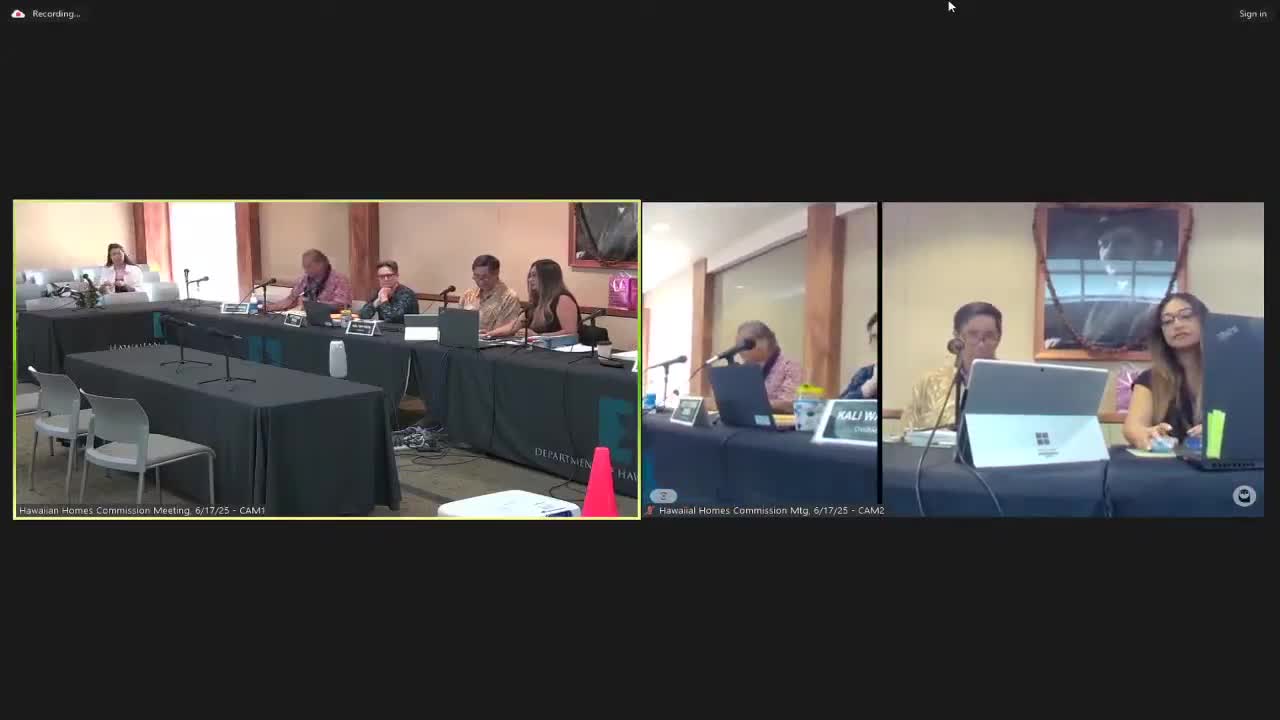
DHHL enforcement unit details seizures, lease recoveries and calls for streamlined contested‑case process
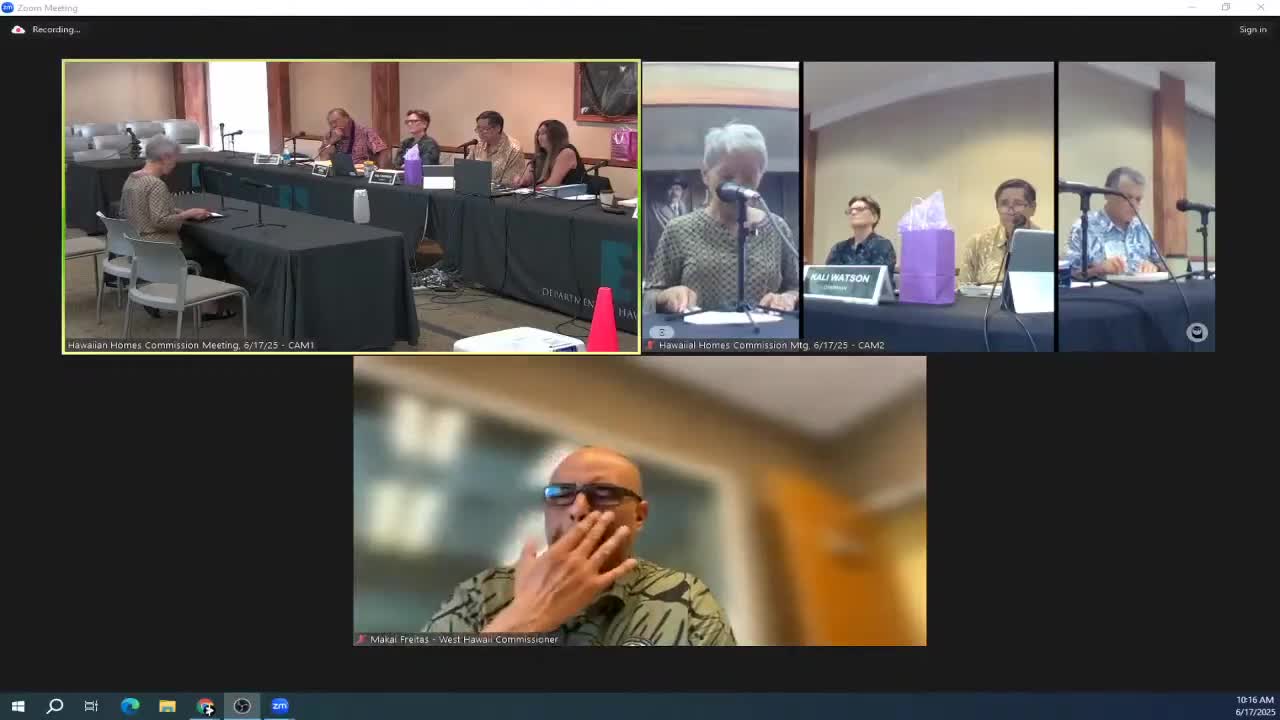
Maluhai beneficiary asks DHHL to review $60,000 VOCA allocation in statewide projects budget
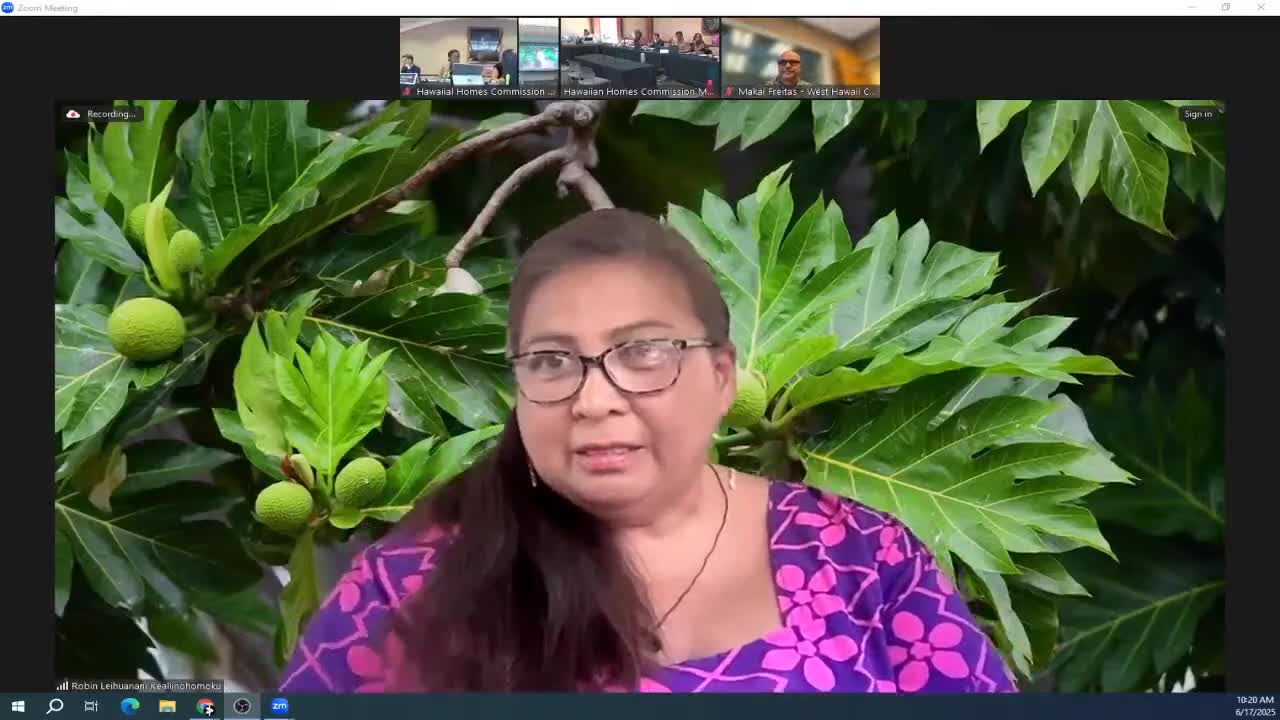
Beneficiaries press DHHL for faster processing of contested‑case requests and right‑of‑entry pre‑applications
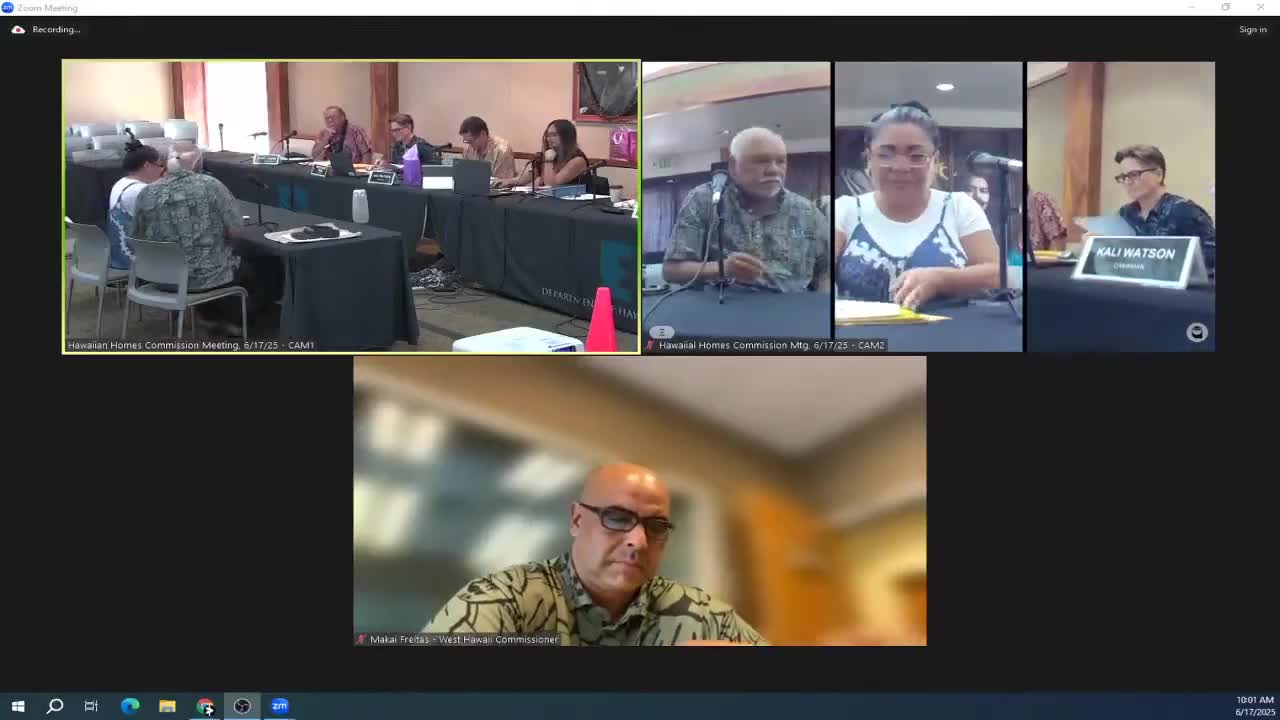
Widow seeks contested-case hearing after DHHL successor letter; commission to consider request next month
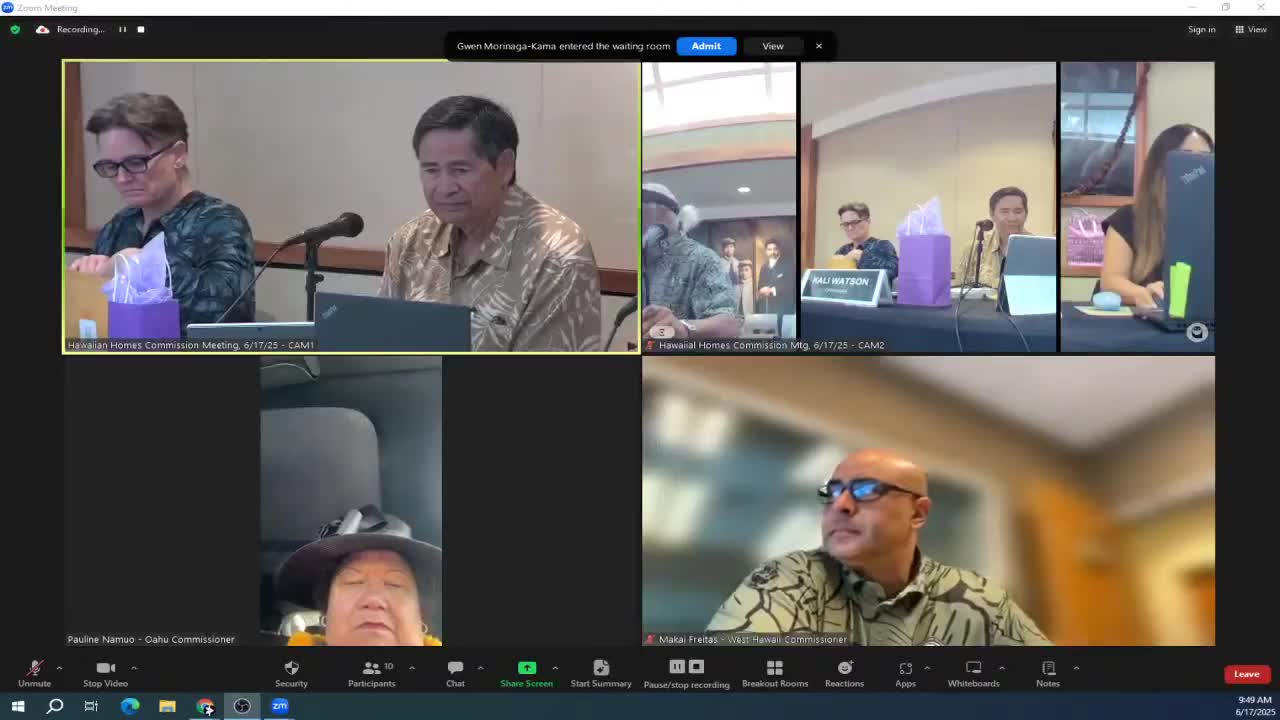
Laʻipāpa community group urges DHHL to build boat storage, presses for solar and water-project updates
